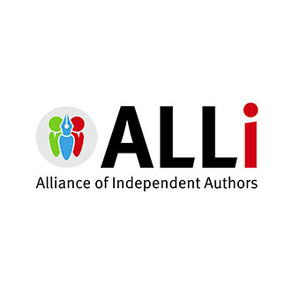The idea of goal setting can seem intimidating, but it’s often a lack of goal setting that leads authors to a place of stress and overwhelm. Without a clear idea of your goals for your author business, you may try to do everything you see successful authors doing without considering that their goals, needs, life circumstances, and the stage of their business differ from yours. Understanding and prioritizing your own goals helps keep you focused and in control of your author path, regardless of the stage of your business.
Beginner Authors: Create and Track a Plan
As a new author, learning about all the processes involved in publishing—not to mention continuing to refine your craft—might feel overwhelming, and it’s challenging to look beyond getting your first book published. But once you’ve achieved that milestone, it’s crucial to think about your long-term goals. What is your plan? What is your vision, and how do you intend to achieve it? Consider taking the following steps to lay a strong foundation for what you want your career to become and shape your business’s growth.
- Evaluate past achievements. What worked well for you over the past year, and how might you capitalize on that success? What didn’t work well, and is it something you want to work to improve or something you want to set aside?
- Define clear objectives. Determine what you want to achieve in the coming year in terms of writing, publishing, and marketing. Use the mnemonic SMART to assess your goals—are they specific (e.g., number of words written or editorial passes completed), measurable (e.g., return on investment of paid ads), attainable (e.g., appropriate for the stage of your author business), relevant (e.g., tied to your vision for your author business), and time-bound (e.g., have a specific target date)?
- Create an action plan. Break down your goals into actionable steps and distribute these tasks throughout the year using a schedule that includes daily, weekly, and monthly tasks. This approach ensures that large goals are manageable, and progress is consistent.
- Monitor your progress regularly. Put a monthly meeting with yourself on your calendar to assess what you have accomplished and what needs adjustment. This continuous monitoring helps you to stay on track and make necessary modifications to your plan.
- Adapt and adjust. Flexibility is key to responding to unforeseen challenges and opportunities that may arise throughout the year.
- Incorporate creative well-being. Balance productivity goals with personal well-being. Ensure your planning includes time for creative rest and play. This balance helps maintain motivation and prevents burnout, fostering sustained creativity and productivity.
You’ll find resources from ALLi for establishing a solid foundation for goal setting here:
Emerging Authors: Plan for Profit
For emerging authors, planning should be an integral part of your writing business to ensure not only productivity but also profitability. Incorporating values into your plans makes them more meaningful and personal, fostering long-term success. Here’s how you can approach this:
- Evaluate current performance. Begin with a thorough review of your current performance. Assess your sales figures, reader reviews, website traffic, and social media engagement. This helps identify areas of success and those needing improvement.
- Define productivity and profit goals. Measure your output in terms of books published. Track your financial performance by calculating the money earned after deducting publishing expenses. Aim to increase your profit margins progressively. Evaluate your influence and impact through platform reach and engagement. This can be measured by book sales, follower numbers, and audience interaction.
- Incorporate personal values. Ensure your plans reflect your personal values and goals. Gauge your creative happiness by self-observation, rating your pleasure in work from one to ten. This helps ensure you enjoy your creative process, preventing burnout.
- Follow a structured creative planning process. Implement a review and adjustment process that will help maintain a balanced approach to both creative output and business growth.
By integrating these steps, emerging authors can create a sustainable and fulfilling writing business, balancing creativity with business acumen.
Orna Ross, founder of the Alliance of Independent Authors, offers a monthly business planning program for authors. More information is available at her website, Orna Ross - Go Creative.
Experienced Authors: Stay Flexible
Even experienced authors can benefit from a regular thorough reevaluation of goals. Consider “big picture” items like genre, brand, writing style, and website design. A major pivot might open opportunities you would miss without this exercise.
Especially for experienced authors, a common pitfall is to focus too much on the business side and neglect the creative side, risking overwhelm or burnout. Effective creative business planning factors in rest and play alongside creative work.
Learn more with these ALLi resources:
Setting goals is vital for charting your path, seizing opportunities, and maintaining a balanced pace. Take time to step back, assess your performance, celebrate your accomplishments, and adjust your goals as needed. Don't forget to prioritize goals for creative rest and play; this balance is key to sustaining your drive and realizing your full creative and business potential as an author.
Matty Dalrymple, ALLi Campaigns Manager








